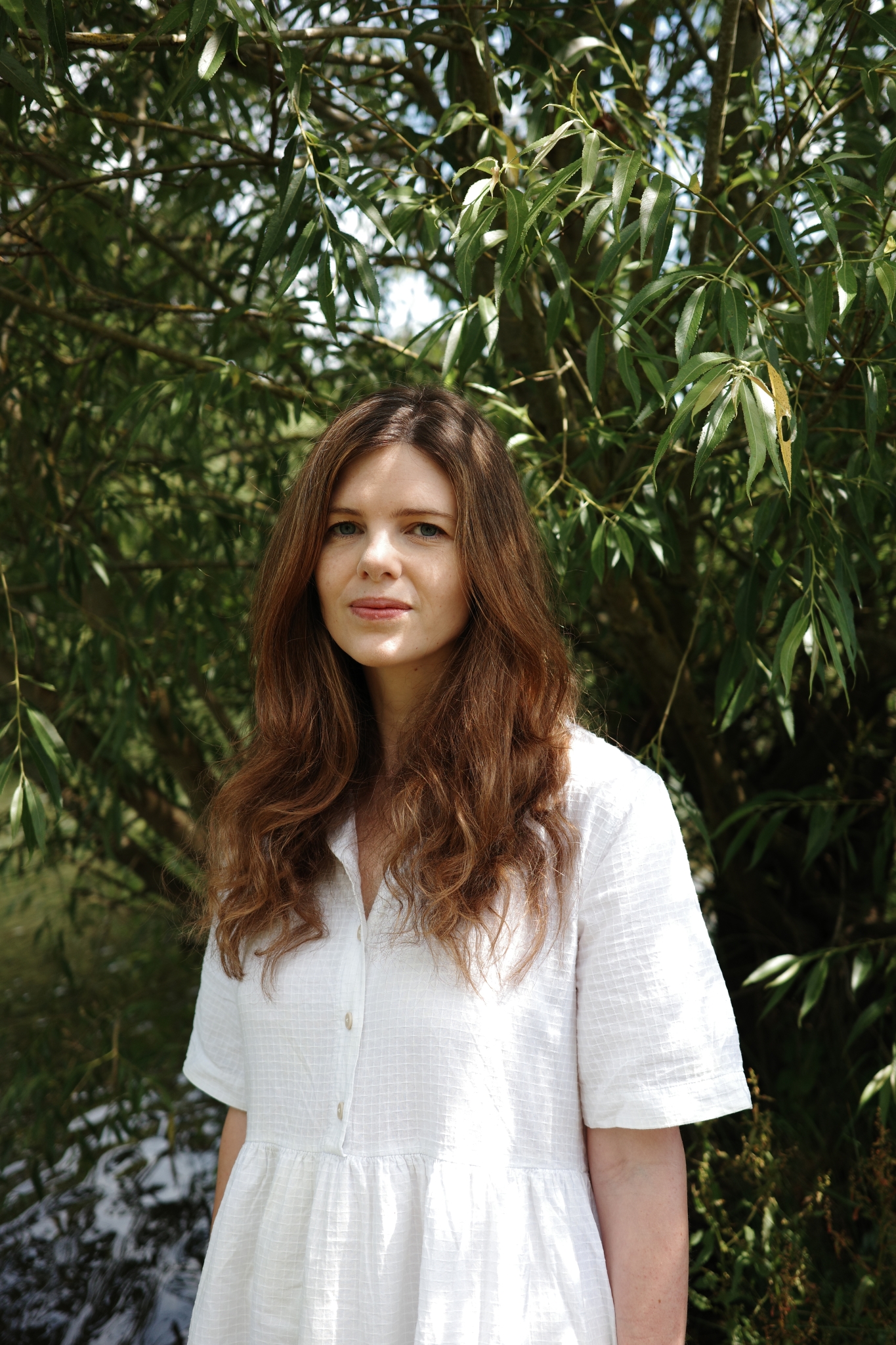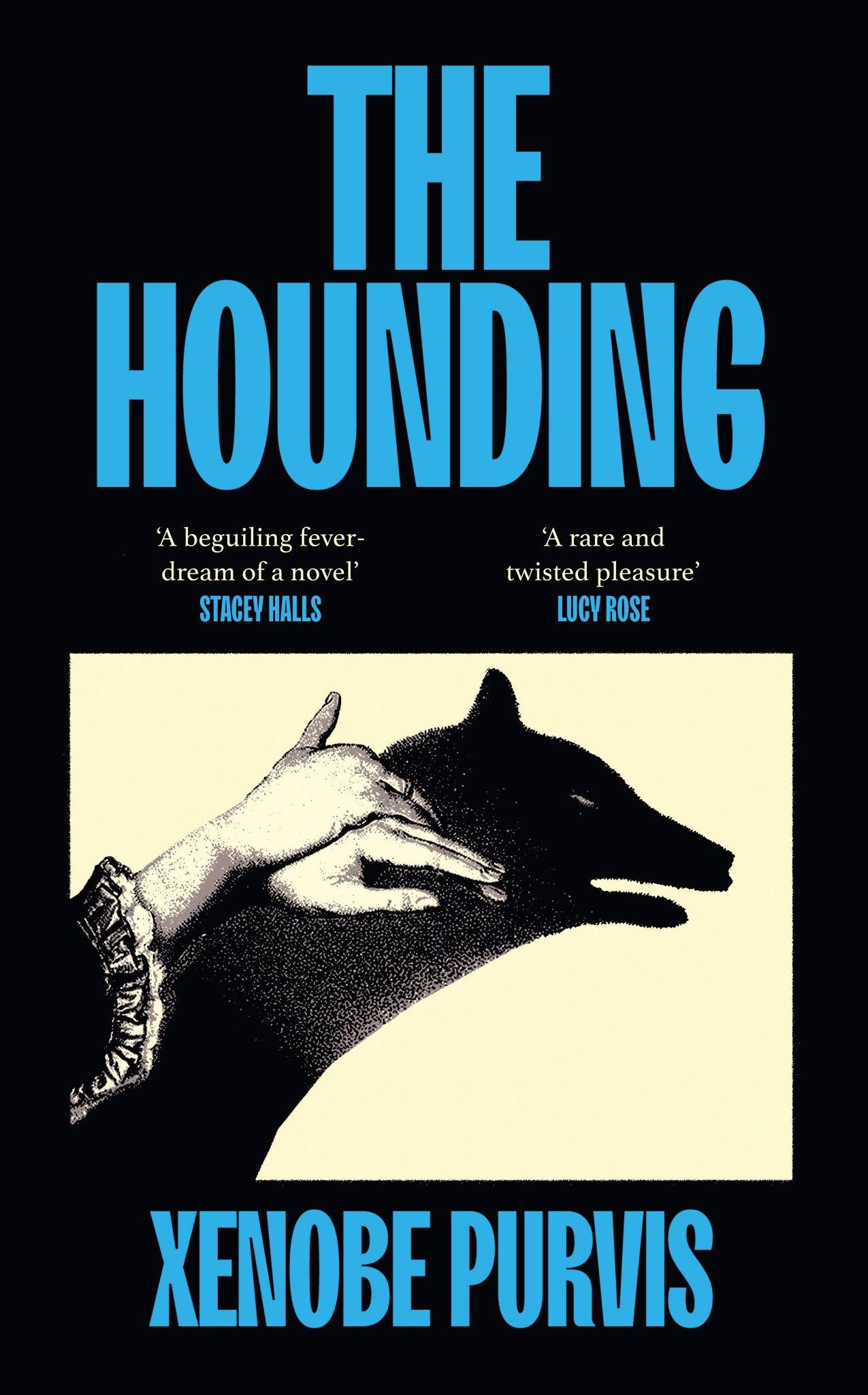
Set in 18th century Oxfordshire, the writer’s debut novel about five sisters is a cross between The Virgin Suicides and The Crucible.
For the many years I’ve had the pleasure of knowing writer, literary researcher and Oxford graduate, Xenobe Purvis, we’ve spoken of stories. Over countless dinner tables, walks, and long drives, we’ve exchanged ideas for novels, vignettes, plays, films and beyond, each one more brilliant–we thought–than the last. But when Xenobe shared her idea for a story inspired by historical events, I knew she had found the one. That idea became her debut novel, The Hounding, a strange and haunting tale of mass hysteria set in 18th-century rural England. At the heart of it are the five Mansfield sisters, who seem to live under the town’s relentless gaze and judgment. Their beauty, their difference and their closeness, unsettle the community, who grow to perceive them as dangerous. The town turns on them with a terrifying and twisted violence, exposing questions of gender, power and the potency of rhetoric, which still endure today. Xenobe’s writing is visceral, poetic, and dark, yet somehow laced with her own distinct, sharply observed humour, which I’m thrilled the world now has the chance to encounter. The Hounding is a story that stays with you long after the final page.
Sara-Ella Ozbek: What was the inspiration for this book and how did you come up with the story?
Xenobe Purvis: I came across the true story of five “barking” sisters in a village in Oxfordshire in 1700 and became obsessed, researching everything I could about the case and the historical setting. I wanted to imagine how events might have unfolded at that time, how rumours might have spread and how such a small, conservative community would have responded to the girls’ situation. The story came quickly: it follows the perspectives of five characters, all connected to the sisters in some way, and asks questions about gender dynamics and power. When a man’s word is pitted against those of five girls, who are people going to believe?
SEO: Who are your favourite authors? Were there any you drew inspiration from for this novel?
XP: I read widely and find it hard to name favourites! But for this novel, I took notes from work I love and admire in the gothic tradition, by writers such as Shirley Jackson and Daphne du Maurier.
SEO: How does it feel to have your debut novel finally about to be published? What has the journey been like?
XP: Very surreal! I have been writing fiction for many years and have several unpublished novels in several drawers. It has been a bruising and sometimes dispiriting process, but I do think I have developed as a writer, as a result. Unlike some of my previous fiction projects, the experience of writing The Hounding felt almost charmed; I had never written historical fiction before, but the setting and narrative voice came naturally to me. It was very exciting.

In the novel, the central sisters are beset by a rumour, spread by an angry, alcoholic ferryman, that they are turning into dogs. I was intrigued by the dynamics of that situation and the themes of power, misinformation and mythologising that it raises.
SEO: Tell me about your reading habits? What are you reading at the moment and why?
XP: I’ve just been revisiting Angela Carter for a piece I’m working on. Elsewhere, my reading is often informed by my job in literary research. My favourite way to find something new to read is to go deep into the stacks at the London Library and pull out books at random from the shelves.
SEO: How did you first know you wanted to be a novelist?
XP: I had an inkling when I was very young, and then when I was ten or eleven, I knew for certain. It was like entering into a binding commitment, a marriage; I made a vow to myself and never looked back. I was fascinated by the power of the stories I read—how transporting they could be, how closely they could shape my thoughts or mood, how words could fit together so beautifully on a page. Maybe I was a ten-year-old megalomaniac: I craved that power.
SEO: Can you talk about the main themes in the book and how you developed them?
XP: On the one hand, I was very interested in girlhood and sisterhood—I always have been—and on the other, I was thinking a lot about toxic masculinity and the policing by men of girls’ bodies and behaviour. In the novel, the central sisters are beset by a rumour, spread by an angry, alcoholic ferryman, that they are turning into dogs. I was intrigued by the dynamics of that situation and the themes of power, misinformation and mythologising that it raises.
SEO: What are your favourite films and did any films play a part in inspiring The Hounding or elements of it?
XP: My favourite films are literary adaptations. I love all the Merchant Ivory adaptations of E. M. Forster’s novels, most especially A Room with a View. I was also enchanted—as I think a lot of teenage girls were in the early 2000s—by Sofia Coppola’s adaptation of The Virgin Suicides. Coppola’s dreamy, almost other-worldly rendering of the Lisbon sisters certainly came to mind while I was writing The Hounding.
SEO: What is next for you writing wise?
XP: The Hounding launches later this month, which is keeping me busy, but I’m trying to find small windows where I can work on another novel.
The Hounding is published on 26th June by Penguin.





